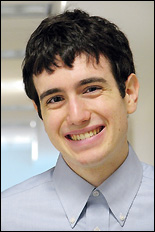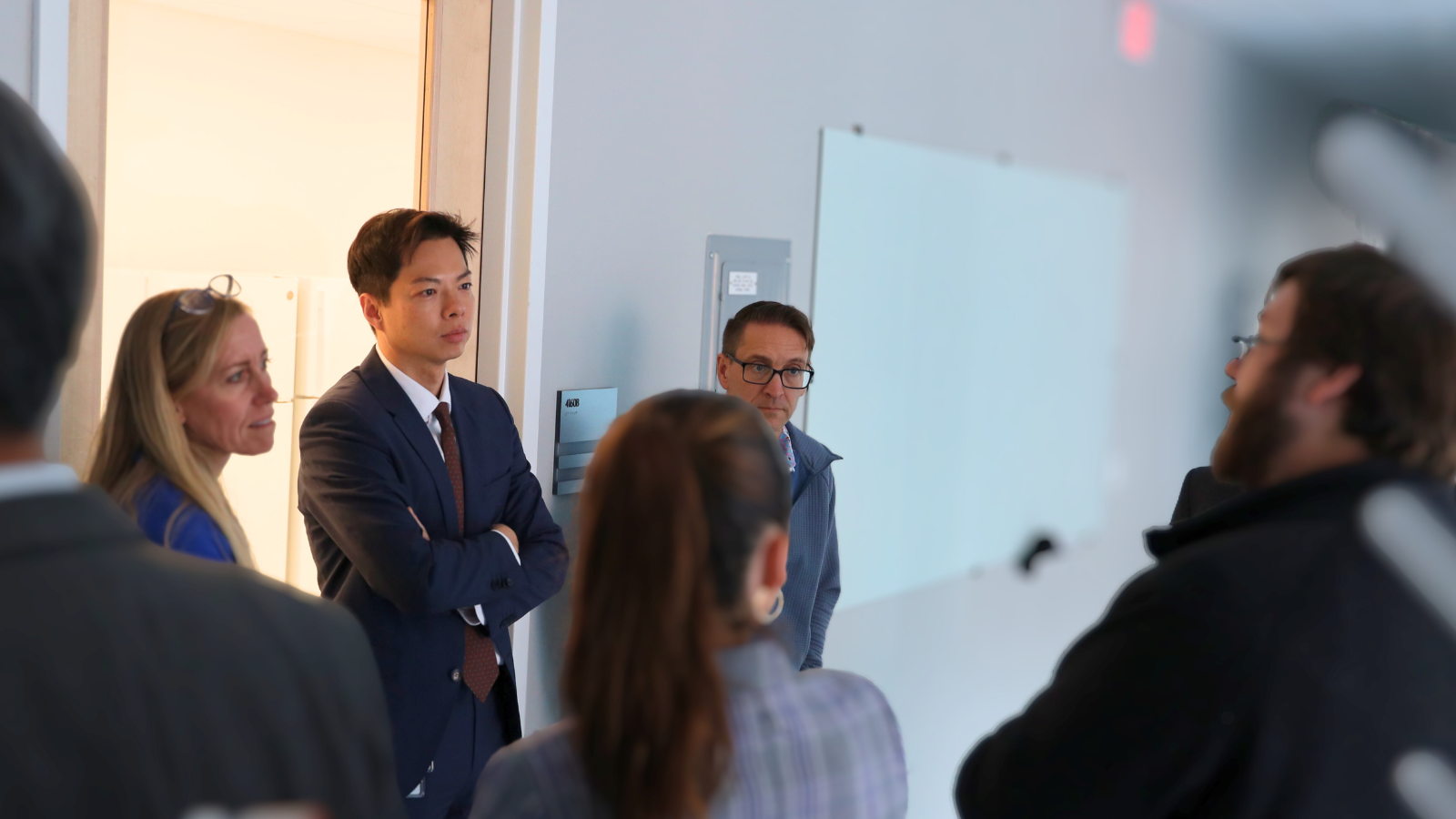News Story
BioE Undergrads Claim 4 of 5 Top Spots in Bioethics Essay Contest
Fischell Department of Bioengineering (BioE) undergraduates Maeve McCoy, Vanessa Niba, Andrew Wesley and Joan Zhang represented four of the five finalists in the Institute of Biological Engineering's (IBE) annual bioethics essay contest.
Zhang took second prize for her essay, "Do You Want To Order A Custom Baby? Genetic Engineering Can Provide the Catalog," McCoy took third prize for her essay "Animal Testing in Bioengineering," and Niba and Wesley received Honorable Mentions. The students presented their essays as semifinalists at the IBE's annual conference in March 2012, where the winners were decided.
Over the five years the IBE has run the contest, Clark School bioengineering majors from the University of Maryland have dominated it, representing eighteen of the twenty-five total finalists and scoring two first place, two second place, and four third place wins.
This year, BioE's four finalists were all freshman from a section of BIOE 120: Biology for Engineers, taught by Lecturer Idalis Villanueva. Writing the essays was one of their assignments.
"It is important to immerse students into the field by introducing them to conferences and cutting edge research instrumental to their professional growth," says Villanueva. "Many times students are aware of these opportunities but don't apply, fearing they won't be accepted or that people will not consider their ideas to be important. Through this project, students learned that their ideas are valued and that voicing them in meetings such as IBE can make a difference. I am very proud of their achievements."
Zhang's essay takes a look at the possibility of being able to create "designer babies," who could be tested and selected for specific genetic traits (or lack thereof) while still in an embryonic state. While acknowledging that true "designer babies" are still more fiction than science, she cautions against trying to make them a reality. The costs associated with allowing parents to pick and choose their children's qualities, she writes, could create a new socioeconomic class of people privileged enough to buy achievement. And, she writes, "...the advantage of genetic modification seems to rob these individuals of the ability to achieve by themselves."
McCoy's essay addresses the often-controversial use of animals in biomedical research. She argues that many alternatives are simply not yet advanced enough to replace it. "Testing a new vaccine or medication in a cell culture will not bear the same results as testing on a living organism because cell cultures do not have organ specific cells that will necessarily react in the same way," she writes. "…a medicine can potentially be harmful to a patient if it is not analyzed correctly in a body." She differentiates between "testing" and "cruelty," and also writes that testing benefits animals as well as people, as we are now able to care for domestic and wild animals more successfully than ever before.
McCoy says she enjoyed the competition. "The conference was a great experience," she adds. "Learning about so much research and meeting so many people allowed me to really think about what I want to do with my career."
Learn More:
Visit the Institute of Biological Engineering web site »
Published April 2, 2012












